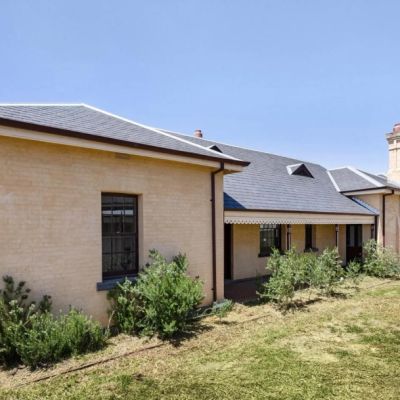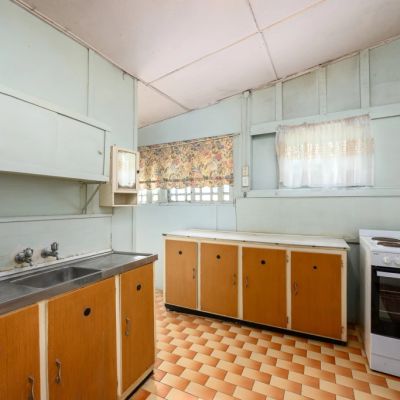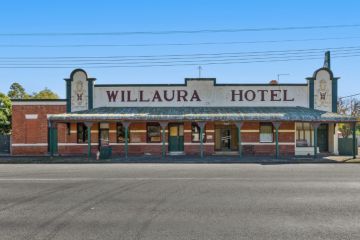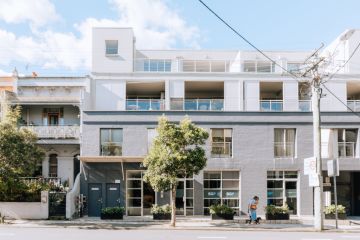Million-dollar gifts, rentvesting or leaving the city: How home buyers do it
More first home hopefuls are moving out of the city, buying an investment property instead, or relying on cash gifts from parents of as much as $1 million, amid an unaffordable housing market.
While an expanded federal government program allowing purchases on a 5 per cent deposit has also been popular, some buyers have struggled to use it to find properties they can afford.

It comes as housing affordability reached its worst levels on record nationally this week, as the cost of a typical Australian home soared to 8.2 times as much as household incomes, on Cotality research.
Cotality found a gap of almost $300,000 between how much the typical household can afford to spend on a home and what the typical home costs.
The typical home seller makes a paper profit of just over $300,000, and the research house said home sellers’ recent capital gains might be reinvested into the housing market, either to upgrade or to help children buy.
“These prices are coming from somewhere other than income,” Cotality head of Australian research Eliza Owen said this week. “Income isn’t enough to get into the market so if you happen to come from wealth or you get some kind of wealth windfall, it privileges some people over others when it comes to housing market access.”
MortgageWorks director Anthony Roddy has noticed families are giving larger gifts to help first home buyers purchase than a decade ago.
“A decade ago a big gift was $150,000, or $250,000. Now it’s really not uncommon to see a gift between $500,000 and $1 million,” he said.
He has been doing several applications for clients purchasing a home using the Australian Government 5% Deposit Scheme at price points higher than the previous cap, since the government lifted the property price caps for the program last month.
He has noticed more priced-out buyers purchasing an investment property and renting where they want to live, or rentvesting. “I’ve never seen more of it,” he said. “A lot of my clients are doing it.”
Chief executive of mortgage brokerage Shore Financial Theo Chambers said buyers are “more stressed than ever” about housing affordability, given rent rises have made it hard to save and expensive mortgages have forced households to tighten budgets.
“If they need to sacrifice holidays for a bit, if they need to not spend as much on going out for dinner, and reduce the spending at the grocery store and not get the organics, they will,” he said.
He has seen interest in the 5% deposit scheme since the removal of the income caps, as the program was previously limited to singles who earned less than $125,000 and couples with a combined income below $200,000. Now it is available to first home buyers on any income under set property price thresholds.
“Not only it’s the changes to the threshold of $1.5 million made a difference, but also removing the income caps – that’s made, if anything, more of a difference, especially in Sydney,” he said.
“There was a lot of people that were earning more than the previous threshold that wanted to buy a property but needed to access that guarantee.”
He said cash gifts from parents to help with a deposit are common. He has seen gifts ranging from $20,000 to $500,000.
Parents are also offering gifts as high as $100,000 to help home owning young families upsize, he said.
Anthony Landahl, managing director at mortgage broker Equilibria Finance, said clients are looking at compromises such as moving away or living in a smaller home such as a townhouse instead of a house.
“People are moving to different regions, they’re pushed out of the metro areas,” he said. “A lot of people are getting priced out of the markets they’re trying to enter.”
He said choosing to rentvest had become a lot more common over the last three to six months.
He said a lot more buyers can now use the 5% scheme but some are looking for homes above the price cap due to the high cost of housing. This meant it was challenging to save a 20 per cent deposit, and more parents have been helping.
“We sometimes see a gift of $100,000, $150,000, so it’s not insignificant, just to help them avoid lender’s mortgage insurance, to help with that deposit,” he said.
“Affordability is becoming a massive challenge whether you’re trying to get into your first home or upgrade. People are making different decisions now than they were a few years ago,” he said.
“‘I can’t afford to live in this city, I’m going to move to a different area,’ or, ‘I can’t afford to buy a home, I’m going to buy an investment,’ those conversations are a lot more common than they were a few years ago.”
We recommend
We thought you might like
States
Capital Cities
Capital Cities - Rentals
Popular Areas
Allhomes
More
- © 2025, CoStar Group Inc.









